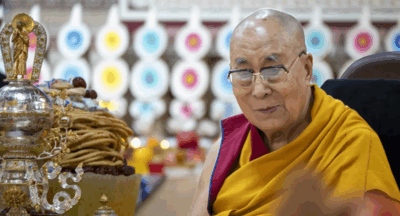The Left movement in Latin America got a big jolt on Sunday as the conservative banker Guillermo Lasso won the presidential elections in Ecuador in the run off by defeating the Left leaning candidate Andres Arauz who was much ahead in the opinion poll till the polling day. Arauz, the protégé of the former president Rafael Correa topped the first presidential poll on February 7 and was expected to win the run off on April 11, according to most political analysts.
Ecuador is presently under lockdown due to the spike in corona virus and the administration is fighting the virus in a situation of declining income of the poor people and rise in unemployment as a result of the deepening recession. The leftwing candidate Arauz offered a radical revamping programme and it generated lot of enthusiasm among the people during the campaign for the run off. Arauz publicized also the tenure of the rule of Rafael Correa who achieved success in improving the living standards of the poor and creating new jobs apart from improving the public health services for the poor.
The Electoral Council in Ecuador did not declare a winner in the contest to replace President Lenín Moreno next month, but results released showed former banker Guillermo Lasso with about 53 per cent of votes and leftist Andrés Arauz with 47 per cent, with over 93 per cent of votes counted. Arauz had led the first round of voting with more than 30 per cent on February 7, while Lasso edged into the final by finishing about a half percentage point ahead of environmentalist and Indigenous candidate Yaku Pérez.
Arauz conceded the election and so did his main backer, Correa who is in exile in Belgium due to the corruption charges against him which he termed as concocted. Correa was hopeful of returning to Ecuador after April 11 election victory of his candidate and help the new presidential candidate to lead the country during the pandemic. But his hopes remained unfulfilled. Analysis shows that Arauz did not get enough support from the third candidate in the February 7 election Yaku Perez of the indigenous group who also canvassed welfare programmes on the lines of the left. Perez has many things in common with the Correa group but there was a clash of egos and instead of fighting jointly against the right, they fought against each other facilitating the victory of the conservative banker Lasso.
“Sincerely, we believed we would win, but our projections were wrong,” Correa tweeted. “Good luck to Guillermo Lasso, his success will be that of Ecuador. I only ask you to stop the lawfare, which destroys lives and families.”
According to agencies, Lasso said after the victory, “For years, I have dreamed of the possibility of serving Ecuadorians so that the country progresses, so that we can all live better,” Lasso said before a room full of supporters despite social distancing guidelines in the port city of Guayaquil. “Today, you have resolved that this be so.”
Accompanied by his wife, María de Lourdes Alcívar, Lasso said that beginning inauguration day May 24 he will dedicate himself “to the construction of a national project that continues to listen to everyone, because this project will be yours.”
Ecuador is deep in a recession that many fear will worsen as lockdowns returns because of a spike in COVID-19 cases. Ecuador has tallied more than 344,000 cases and over 17,200 deaths as of Sunday, according to data from Johns Hopkins University in the United States. The supporters of Correa are reconciled to the defeat in the presidential elections, but they are waiting for the results in the Congressional elections, Full results have not been available.
In another presidential election on Sunday itself in Peru, 18 candidates contested amidst total chaos about programmes and policies and in the first round, nobody could cross over 16 per cent thereby necessitating a run off in June this year. Peruvians are sick with the political parties in the nation as all Peruvian presidents since 1965 have been charged of corruption. A few were arrested and sent to prison while one former president committed suicide. Leftist teacher Pedro Castillo has been the frontrunner followed by the rightwing economist Hemando Soto and Keiko Fujimori, another right wing leader
The congressional elections in Peru would likely result in a splintered legislature, with no party holding a clear majority and political alliances remaining short lived. The new Congress also is likely to continue to exercise its impeachment authority to reinforce its own influence and block any initiative that threatens its own power.
Amidst this political chaos, the covid has hit this Latin American nation also hardest. The country is reeling under recession and the covid as on April 11, totalled 54, 600 deaths and cases of infections 1.6 million. Whoever comes to the government after June run off, will have a tough time as the situation is expected to deteriorate further in the next six months. (IPA Service)

